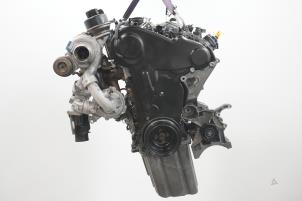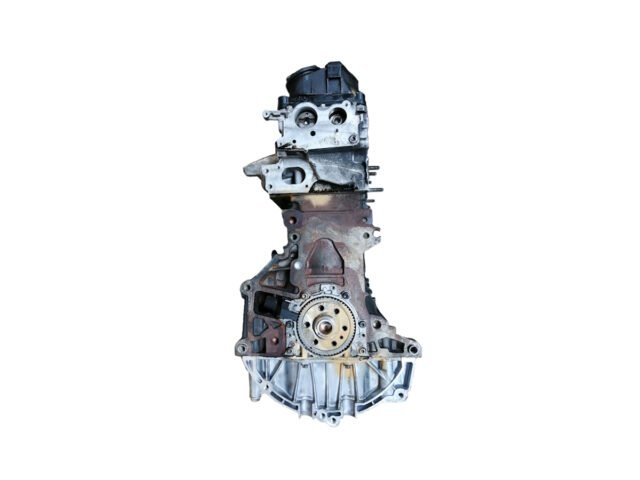Where to Locate the Most Reputable Amarok Engine for Sale-- Leading Distributors and Options
Important Factors To Consider and Tips for Picking the Right Engine for Your Needs
Selecting the right engine is a diverse decision that needs mindful factor to consider of different factors to ensure ideal performance for your certain demands. The intricacies of engine selection extend past these basics, motivating a more detailed assessment of critical aspects that can inevitably influence your fulfillment and success.
Determine Your Function
Establishing your objective is an essential initial step in selecting the right engine for your needs. Comprehending the certain application you have in mind will certainly lead your decision-making process and guarantee that you choose an engine that straightens with your functional needs. Whether you need an engine for a commercial lorry, commercial equipment, or a recreational project, each circumstance needs different efficiency attributes and capabilities.
Think about the environment in which the engine will operate. Will it undergo hefty tons, severe temperatures, or long term use? Examining these aspects will certainly help you recognize the needed power outcome, fuel efficiency, and longevity needed to meet your goals.
Additionally, believe about the lasting effects of your selection. Budget plan constraints, maintenance requirements, and accessibility of parts are essential considerations that will certainly affect your overall complete satisfaction and functional effectiveness.
Inevitably, expressing your objective will certainly improve the selection process and empower you to make an educated choice. By plainly defining your objectives, you can review possible engines more efficiently and choose one that not just satisfies your current needs but also sustains your future goals.
Evaluate Engine Specifications
As soon as you have actually plainly verbalized your function, the next action is to assess engine specifications. This process includes an extensive assessment of numerous technical information that can considerably influence efficiency and suitability for your meant use.
Begin by analyzing the engine's horsepower and torque ratings. Horse power is critical for determining the engine's capability to carry out work, while torque is essential for understanding how well it can deal with heavy loads or velocity. Furthermore, consider the engine variation, as it commonly associates with power result and effectiveness.
Next, examine the engine typeâEUR" whether it is a gas, diesel, or alternate gas engineâEUR" as each type has distinct characteristics and applications. Take notice of the engine's configuration (e.g., inline, V-type), as this can affect dimension, weight, and total performance.
Another important aspect is the engine's air conditioning system, which can affect reliability and maintenance needs. Review the producer's track record and service warranty offerings, as these can offer insights into long-lasting performance and support. Completely evaluating these specifications will certainly aid make certain that you pick an engine that straightens with your operational goals and certain needs.
Take Into Consideration Gas Effectiveness
Fuel efficiency is an essential element to consider when picking an engine, as it straight impacts functional prices and environmental sustainability. An engine's gas effectiveness is usually measured in miles per gallon (MPG) for cars or in specific fuel intake (SFC) for airplane and marine engines. Higher gas effectiveness not just minimizes the amount of fuel consumed yet additionally decreases greenhouse gas exhausts, making it an accountable option for eco-conscious consumers.
When assessing engine options, it is important to evaluate the driving conditions and intended usage. Engines maximized for freeway driving may display better fuel efficiency compared to those designed for stop-and-go traffic. Additionally, consider the engine's technology, such as turbocharging or hybrid systems, which can considerably enhance gas effectiveness.

Assess Maintenance Requirements

Start by examining the supplier's recommended upkeep periods and treatments. Some engines might need more frequent oil adjustments, filter replacements, or specialized maintenance, which can impact your functional downtime. In addition, take into consideration the schedule of parts and the ease of acquiring them. Engines with extensive popularity commonly have lion's shares availability, minimizing lead times during repairs.
One more important aspect is the technical proficiency required for maintenance. Some engines might require specialized training for professionals, which could restrict your choices for company. Moreover, evaluate whether the engine's style allows for simple access to components usually needing upkeep, as this can significantly influence labor expenses.
Spending Plan Your Financial Investment
Understanding maintenance requirements is simply one aspect of selecting the appropriate engine; economic considerations play a similarly important function (amarok engine for sale). Establishing a clear budget plan is important, as it affects not just the initial acquisition cost yet also lasting functional costs
When budgeting, consider both the ongoing expenditures and upfront costs such as gas efficiency, maintenance, and potential fixings. A seemingly budget friendly engine may incur greater expenses with time due to bad gas economic situation or frequent maintenance requirements. Furthermore, review the accessibility and cost of extra parts, as well as the service warranties used by suppliers, which can provide financial protection against unforeseen expenses.
It is additionally important to consider possible financing options or leasing arrangements, check my site which can ease instant financial worries. Balance your need for advanced features with your budget plan restraints, ensuring that you buy an engine that meets your performance requires without compromising monetary stability.
Eventually, a well-rounded budget plan will certainly empower you to make enlightened choices, straightening your engine option with both your financial capabilities and operational needs, resulting in an extra sustainable investment in the future.

Conclusion
Finally, selecting the ideal engine demands a complete understanding of particular demands and applications. Mindful evaluation of engine specifications, gas effectiveness, and upkeep needs is vital for educated decision-making. Furthermore, developing a detailed spending plan makes certain that both preliminary and continuous prices are workable. By sticking to these individuals, factors to consider and organizations can make a sustainable investment that straightens with their operational objectives and efficiency expectations, inevitably boosting general effectiveness and effectiveness.
Fuel effectiveness is a critical element to take into consideration when selecting an engine, as it directly impacts operational expenses and environmental sustainability. An engine's gas performance is generally determined in miles per gallon (MPG) for vehicles or in certain fuel consumption (SFC) for airplane and marine engines. Diesel engines usually give better gas performance than gas engines. Eventually, picking an engine with a strong emphasis on gas effectiveness can lead to substantial long-lasting financial savings and contribute positively to ecological efforts. Cautious assessment of engine specifications, gas performance, and maintenance needs is vital for informed decision-making.